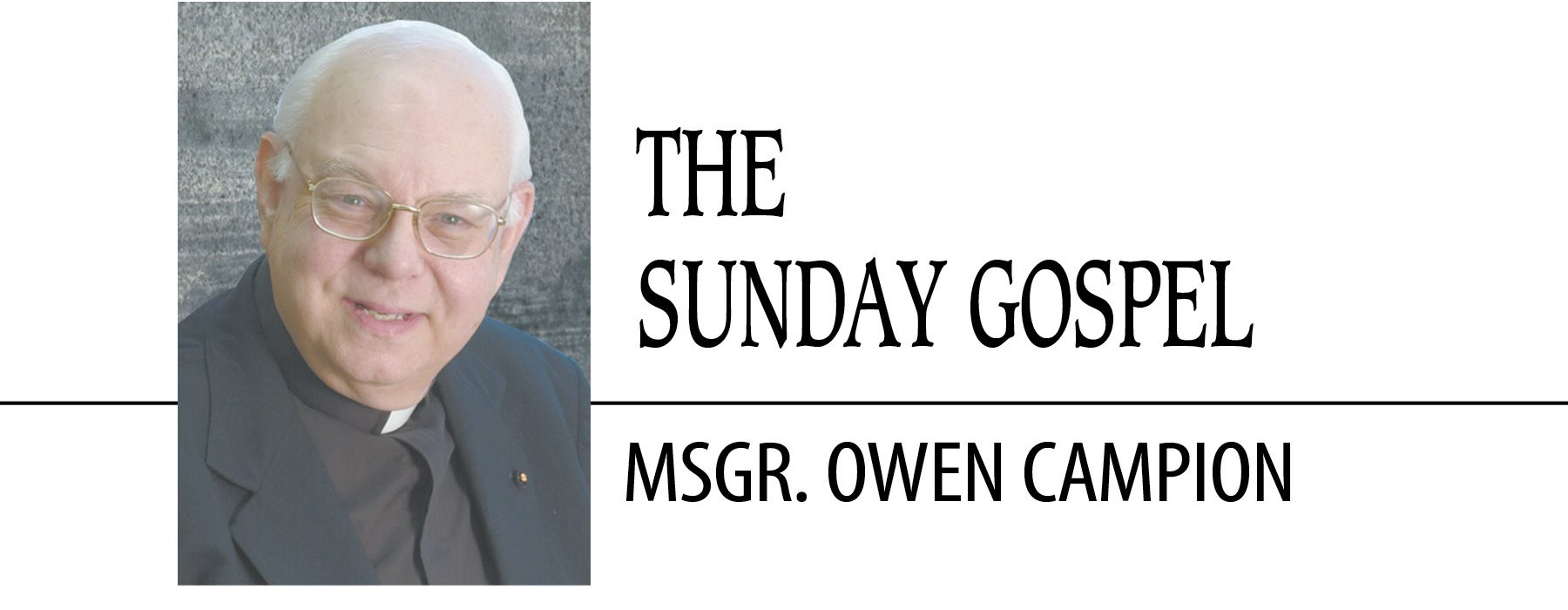September 26, 2020 // The Sunday Gospel
Turning from sin leads to eternal life
Twenty-Sixth Sunday in Ordinary Time
Matthew 21:28-32
The Book of Ezekiel provides of this weekend’s first reading. Pivotal in Jewish history was the time spent by Hebrew captives, and by their descendants, in Babylon, the capital of the then-powerful Babylonian Empire, located roughly in modern Iraq.
Babylonia had overtaken the Promised Land militarily, in a process forever ending the two Hebrew independent kingdoms. Many survivors were taken to Babylon.
Occurring in the sixth century B.C., this event is called the exile. For the Hebrew people, the exile was a heartbreaking time. They were so far from their homeland. The exile seemed as if it would last forever. Indeed, it lasted for four generations. Likely many Jews fell away from the traditional religion of their ancestors.
These people were like people in any other time. Religion seemed for many to have failed. God had failed them.
During this time, Ezekiel wrote to respond to the fury and despair of the people. The prophet turned the tables. He confronted the people with their own sinfulness. Where was their devotion to God? How faithful had they been in being God’s people? No one realistically could have argued that there had been no sin. Who deserted whom?
The Epistle to the Philippians is the source of the second reading.
Many early Christians were Jews by birth. Many of these Jews, such as Paul himself, had been pious in their religious practice, well-versed in Judaism. Many other early Christians were from pagan backgrounds. In early Christian communities, persons of both these traditions lived side by side.
Such was the case in Philippi. Jewish symbols and references appear in the Epistle, but the city in no sense was Jewish. Jews were there, but Philippi was thoroughly pagan, an important military base in the Roman Empire, situated in what now is Greece.
Since Christians were in the minority, surrounded by dislike and suspicion at best, the Epistle tried to reinforce their commitment to the Lord and challenge them to be firm.
This epistle magnificently proclaims Christ, the Lord, as the Savior: the center, the focus, and the example to follow. He is the Redeemer! He is everything!
St. Matthew’s Gospel furnishes the third reading. It recalls an encounter between Jesus and priests and elders. Since religion was a favorite topic for everyone at the time, even priests and persons learned in Judaism were interested in what Jesus said.
God is the father in the parable. The vineyard represents the heavenly kingdom. The sons are humankind.
The message is about repentance. The first son refused to obey but reversed his decision. The second son promised to go into the vineyard but did not. Both sons, however, were invited to the vineyard. All people are the objects of divine love. Both sons stumbled, but one repented and was admitted as if nothing otherwise had happened.
Any sinner can repent and recover access to salvation.
Reflection
The weekend’s readings are in the stream of readings heard earlier during the late summer and now early fall. The Church calls us to discipleship.
We should hear this call by admitting that we are sinners. Sin shames us and insidiously convinces us that God is hostile to sinners, that they are overwhelmed, helplessly trapped in a state of sin, despair and estrangement from God.
The greatest sinner can repent, first by recognizing that voluntary sinfulness cripples and presents a course toward ruin.
Humbly, we can turn to God — any one of us. We must face the fact of our sin and ask forgiveness. God’s love will strengthen us.
If we are as repentant as was the first son in Matthew’s story, as wholehearted in our love for Jesus as joyfully exclaimed in the reading from Philippians, then God will welcome us to everlasting life.
The best news. Delivered to your inbox.
Subscribe to our mailing list today.






